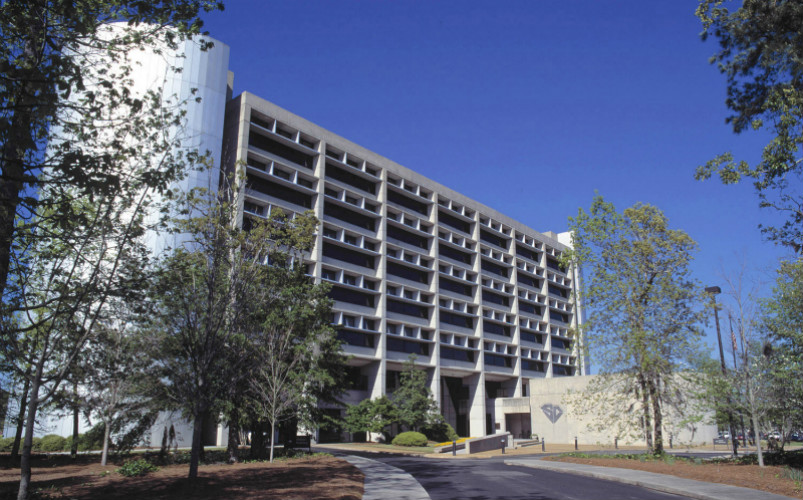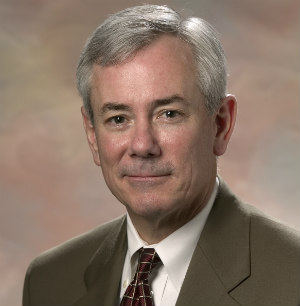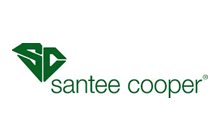
By Jim Brogdon, special to Statehouse Report | Nearly two years have passed since Westinghouse Electric Co. declared bankruptcy and effectively rejected its contract to build two new nuclear reactors at V.C. Summer, exposing our customers to previously unknown and skyrocketing construction costs and thus causing Santee Cooper to suspend the project.

After nearly two years of evaluation, the S.C. General Assembly just approved a process for private, shareholder-owned companies to submit bids to purchase Santee Cooper or to take over its management. Also under that directive, Santee Cooper is developing a proposal to remain a state agency, with restructuring and process changes but still focused on what is best for customers and the people of South Carolina.
Over the past 85 years, Santee Cooper has provided reliable, low-cost electricity to customers across the state, directly and indirectly through wholesale distributors. Your state-owned utility has also led South Carolina by being the first utility in the state in developing renewable energy generation, in providing energy efficiency programs, in creating jobs and capital investment through economic development programs, in providing public drinking water to several localities, and in installing environmental control technology on fossil fuel generation.
Looking forward, from the board to frontline employees, we believe a restructured Santee Cooper offers the best value to customers and the state. Now is the time to prove it, and the hard work is underway.
There is legitimate frustration and concern regarding the impact of the V.C. Summer project. We accept responsibility for that. We have a plan to address the remaining nuclear debt and at the same time maintain competitive rates and solid financial metrics for Santee Cooper – both of which are important to customers.
Over time, Santee Cooper borrowed approximately $4 billion for the nuclear project, and in July 2017 had a total debt of about $8 billion, with the remainder related to building other generating units, transmission upgrades and projects that deliver low-cost, reliable electricity day in and day out to nearly 2 million South Carolinians. Public power utilities can issue tax-exempt debt, which is a very low-cost way to build big projects and pay them off over the life of the assets – over decades, actually. Santee Cooper’s debt level is in line with other large public power utilities, and debt management is one reason Santee Cooper’s residential customers have the lowest monthly bills among all large utilities in South Carolina (based on the typical residential bill of 1,000 kilowatt-hours per month).
 Santee Cooper has paid off nearly $1 billion of that debt, which now stands at approximately $7.2 billion. The debt reduction came through cutting budgets to help delay the need for rate increases, optimizing a nearly $900-million settlement with Toshiba (Westinghouse’s parent) to produce approximately $1.4 billion in aggregate savings to customers, and reducing annual fuel costs by approximately $150 million since 2014.
Santee Cooper has paid off nearly $1 billion of that debt, which now stands at approximately $7.2 billion. The debt reduction came through cutting budgets to help delay the need for rate increases, optimizing a nearly $900-million settlement with Toshiba (Westinghouse’s parent) to produce approximately $1.4 billion in aggregate savings to customers, and reducing annual fuel costs by approximately $150 million since 2014.
We also continue to maintain A-rated credit from all three major credit agencies, and to keep customer bills low. Existing rates provide revenue that is paying down the non-nuclear debt. Santee Cooper has already increased rates an average 5 percent since 2009 for the nuclear project, and project to gradually increase rates another 7 percent over several years to provide revenue that will finish paying off the nuclear debt – all while maintaining competitive rates.
That’s the existing plan, and we are looking for other measures that further improve efficiency. The outcome is yet to be determined, but Santee Cooper customers and the state will benefit from the hard work and incredible talent our employees put into the process. Santee Cooper is competing with shareholder-owned utilities to see who can provide the greatest value to our customers and the state, and we are grateful to the legislature for establishing a process that will allow a fair and objective comparison.
Jim Brogdon is interim president and CEO of Santee Cooper.
- Have a comment? Send to: feedback@statehousereport.com..



How about selling off the now useless to Santee Cooper AP1000 parts that were to be V.C. Summer Unit 2 and V.C. Summer Unit 3? Wouldn’t that reduce some debt, as well as save the cost of maintaining those parts?
Would Santee Cooper rates be even more competitive, (cheaper), if they were not raised an additional 7 per cent?
The state should not be involved in running the criminal activities of a utility company. For years, Santee Cooper has lied about the safety of its substations, causing irreparable harm to so many. They have forced people from their homes when they needed a right of way for power lines, and have protected employees who have maimed others in auto accidents. Their unlimited resources to fight cases in court have harmed hundreds of people.
Sell them to another company – that way the government of SC won’t be responsible for all the benefits and retirement packages that current employees enjoy.
Michael Tidwell, please provide some statistics to support your accusations. Additionally, please provide data that shows a privately owned utility would have a better track record. Those issues are not criminal and it is not criminal for any company to defend against those types of charges.
Santee Cooper has long been the only revenue producing agency of the State. I have little doubt that the monies South Carolina receives significantly support the State’s benefit package. Santee Cooper continues to support those programs through employer and employee contributions. I can’t imagine that future contributions would continue if a private organization purchased Santee Cooper. That alone would be a tremendous revenue loss since the State must continue to fund the benefits for existing retirees and future benefits for current and past employees who are not yet receiving benefits, but will. Thank you for your attention.